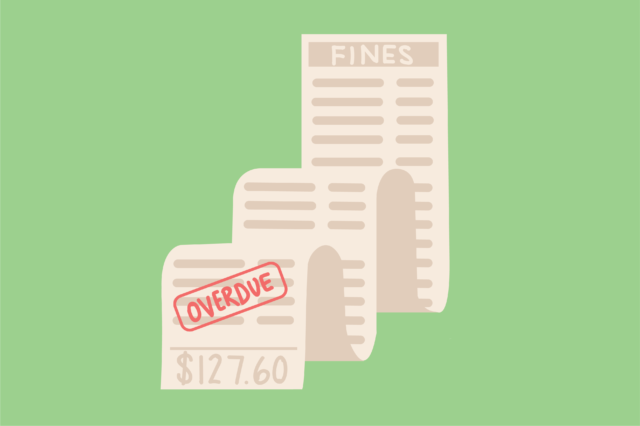
Library fines are every avid library patron’s nightmare, but they don’t have to be
This summer I went back to my library to work as a co-coordinator running a month-long summer reading camp for elementary school kids. I noticed flyers across the library saying that the Alameda County Library (ACL) system had gone fine-free starting July 1. Paying library fines was such a routine part of my childhood that I realized I had never considered the possibility of a fine-free library.
As it turns out, the ACL system isn’t the first or the only library to have eliminated fines on overdue books. A map from the Urban Libraries Council marks the library systems across the country which have gone fine-free. Although the map is still sparsely populated in some areas, it illustrates a movement that has found considerable traction and success in the past few years.
Libraries across the country have made this move in an effort to expand access to all members of their communities. On Oct. 1 the Chicago Public Library system went fine-free after noticing the adverse effects of fines on its community. About one in five suspended library cards belonging to children under 14, according to the Chicago Public Library’s data. One in three patrons in the Chicago Public Library’s South District were unable to check out books due to outstanding fines. This data was very troubling, especially for someone like Andrea Telli, the Chicago Public Library commissioner. Telli told the Chicago Sun Times that fines often deter patrons from returning to the library, and when this happens, “we lose the fine, the patron and the material, but the fine is really the most unimportant part.”
The San Francisco Public Library (SFPL) first went fine-free for teens and juveniles in 1974 and, on Sept. 16, 2019, that policy was extended to all library patrons. Some people are unsure about this movement, however, assuming that fines constitute a large portion of library revenues and therefore are necessary. Fines only made up 0.2% of the SFPL’s budget in the 2017-18 fiscal year, however, according to “Long Overdue,” a report from the Office of the Treasurer and Tax Collector in San Francisco. Considering the relatively small share fines contribute to library revenue, going fine-free isn’t far-fetched.
“It made sense for our particular community and our particular system,” said Jamie Wong, the Public Relations officer of the SFPL.
The Alameda County Library tested out the fine-free program for a couple months before finally committing to making a permanent move to eliminate fines this past July. Like the SFPL, this wasn’t a difficult financial decision for the ACL to make.
“The overdue fines the library used to collect made up 1.2% of the library’s budget, a percentage we were able to absorb without any negative impacts to our services and collections,” said Alicia Reyes, the Public Information Specialist for the ACL. “The act of collecting and processing fines cost the library much more in staff time than the revenue collected offset.”
The fine-free movement is important just as much as it is exciting. I didn’t like paying my library fines, but I was privileged in that my fines never prevented me from returning to the library. Unfortunately, for many other families — especially low-income and minority families — those same fines can be a financial burden, which data suggests could stop them from coming back to libraries.
Keeping track of fines and due dates can be stressful, but it doesn’t have to be. According to both Reyes and Wong, the fine-free program has been successful in their libraries. That being said, going fine-free might still be an issue for some libraries, particularly smaller branches where fines might constitute a substantial source of revenue.
“Without knowing fully the picture of another library system’s budget, it’s hard to say — I can only say that when we reached out to libraries who already went fine-free, they only noticed positive impacts from making this decision,” Wong said.
Going fine-free isn’t a radical or outlandish idea. Libraries are an important public service that should remain open and accessible to all community members, and I am excited to see where the fine-free initiative goes.
Written by: Simran Kalkat –– skkalkat@ucdavis.edu
Disclaimer: The views and opinions expressed by individual columnists belong to the columnists alone and do not necessarily indicate the views and opinions held by The California Aggie.
"fine" - Google News
November 02, 2019 at 12:30AM
https://ift.tt/2NuEfY1
We should be fine with eliminating library fines - The Aggie
"fine" - Google News
https://ift.tt/2NyjnPq
Shoes Man Tutorial
Pos News Update
Meme Update
Korean Entertainment News
Japan News Update
No comments:
Post a Comment